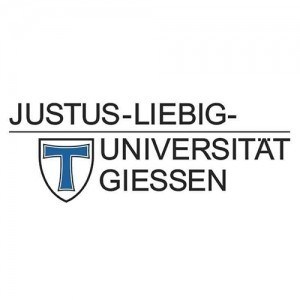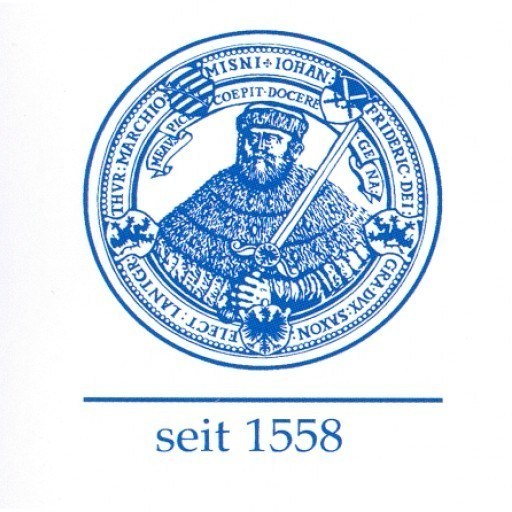Photos of university / #jlu.giessen
The MSc in Global Change: Ecosystem Science and Policy at Justus Liebig University Giessen offers a comprehensive interdisciplinary approach to understanding the complex challenges posed by global environmental change. This program is designed to equip students with scientific knowledge, analytical skills, and policy expertise necessary to address issues related to climate change, biodiversity loss, land use, and ecosystem management on a global scale. Students will engage with cutting-edge research in ecology, environmental science, and socio-economic policy frameworks, gaining the ability to analyze the interactions between human activities and natural systems. The curriculum includes core modules in ecosystem science, climate change science, environmental policy, and sustainable development, alongside optional courses that allow specialization in areas such as conservation, forest management, or agricultural ecosystems. Emphasis is placed on practical experience through fieldwork, laboratory exercises, and project-based learning to develop skills in data collection, spatial analysis, and environmental assessment. The program also fosters an understanding of the political, economic, and social dimensions influencing environmental decision-making, encouraging students to develop innovative solutions for sustainable management of ecosystems and natural resources. Graduates will be prepared for careers in environmental consultancy, policy advising, research institutions, and international organizations dedicated to combating global environmental challenges. The program benefits from strong links with international partners and offers opportunities for study exchanges and internships, providing students with valuable global perspectives and professional networks. With a curriculum rooted in scientific excellence and practical relevance, this master's program aims to contribute meaningfully to the global effort of understanding and mitigating the impacts of global change on ecosystems worldwide.
Educational organisation
The course is modular and credits will be awarded for each successfully completed module based on the ECTS (European Credit Transfer System). The Master of Science in Global Change requires the students to complete a total of 14 taught modules (12 core modules and two optional modules).Core Modules:
UCD, Dublin:
Global Change - Introduction
Introductory Statistic Using R for Computational Biologists
Plant-Atmosphere-Climate Interaction
Environmental Impact Assessment and Strategic Impact Assessment
Science and Policy
Optional module: Biodiversity; Peatland and Environmental Change; Energy Systems & Climate Change; Management of Sustainable Fisheries; Design of Experiments
JLU, Giessen:
Plant-Soil-Atmosphere Interactions
Ecosystem and Model Development
Political Consulting - Environmental Policy and Development Cooperation
Resource Economics and Environmental Management
Man in Past Climates and Climate Change Impacts
Biodiversity Informatics
Optional module: Global Change - Advanced Techniques; Scientific Presentation in Ecology; Human Health Impacts of Climate Change: the International Dimension; Evolutionary Biology
Study abroad unit(s)
Participants spend the first semester of the programme (starting in September each year) at University College Dublin.Forms of assessment
Modules in Dublin and Giessen range from three to six credit point modules. Assessment varies in the different modules and includes written exams at the end of the semester (predominantly in Dublin), written reports, and oral presentations.Course objectives
The Joint International Master's Degree in Global Change takes on a leading role in both science and policy, training graduates to pursue a research career and at the same time to communicate directly with policy-making bodies. This includes the following options:- Further postgraduate education and research
- Governmental and non-governmental policy
- Scientific and consulting agencies
- Public education/understanding of science
- Scientific journalism/publishing
Language requirements
If their primary degree was not in English, candidates must provide evidence of competence in the English language.- IELTS (International English Language Testing System-Academic): minimum overall band score of 6.5, with a result NO LESS than 6.5 in each of the individual sections
- TOEFL (Test of English as a Foreign Language) internet-based test: minimum total score of 100 out of 120, with a score NO LESS than 22 in Reading and Listening, NO LESS than 26 in Speaking and NO LESS than 24 in the test of written English; paper-based test: minimum total score of 600 with a score NO LESS than 5.0 in the Test of Written English
Academic requirements
Applicants should possess a Bachelor's degree (or an equivalent, officially accepted academic degree) or higher degree from an accredited university. Normally, the following science degrees are accepted: biology (including zoology, botany, ecology, natural or environmental sciences, geology, biochemistry or agriculture). Admission for applicants with other degrees (e.g. geography and environmental policy) may be considered, but conditions in respect to necessary knowledge for admission may be imposed.Applicants should hold a Bachelor's degree with honours (GPA 2.48 or higher) and 180 ECTS credit points.
Enrolment fees
JLU Giessen does not charge tuition fees (except for the Master's course in Global Change, taught in English)! You only pay a semester contribution (280 EUR per semester) covering the costs for the student body, student services, and the unlimited use of public transport in Giessen and large parts of Hesse (semester ticket).Costs of living
The average cost of living in Giessen is approx. 700 EUR per month.- Meals: The cheapest option is the student cafeteria (Mensa), which is definitely a good choice. Prices range from 2.50 to 6.40 EUR.
- Drinks in a bar/restaurant: A small soft drink or a cup of coffee usually amounts to 2 EUR, and a cappuccino or a beer costs around 2.30 EUR.
- Public transport: Regional public transport within the Rhine-Main and Northern Hesse region is free for students at JLU Giessen.
- Cinema: 5-8 EUR
Accommodation
As a student in Giessen, you can choose between private accommodation or life in a student hall of residence. JLU's accommodation office (Studentenwerk Giessen) offers you support in finding a place to stay.Student halls of residence
If you wish to rent a room in a hall of residence, you have to submit your application directly to the Accommodation Office of the Studentenwerk, which accommodates over 2,500 students in 10 halls of residence and apartment buildings. It offers a welcome package for newly arrived students.
Private apartments and rooms:
If you choose to rent an apartment or room on the open market, the print and online editions of Giessen's local newspapers contain listings:
- Gießener Allgemeine - http://www.giessener-allgemeine.de
- Gießener Anzeiger - http://www.giessener-anzeiger.de
- Mittelhessische Anzeigen Zeitung (MAZ) - http://www.maz-verlag.de
- Gießener Express - http://www.marbuch-verlag.de
Please remember that Giessen has the highest student density of all German university towns. Thus, it is a good idea to start your search for accommodation as early as possible.










